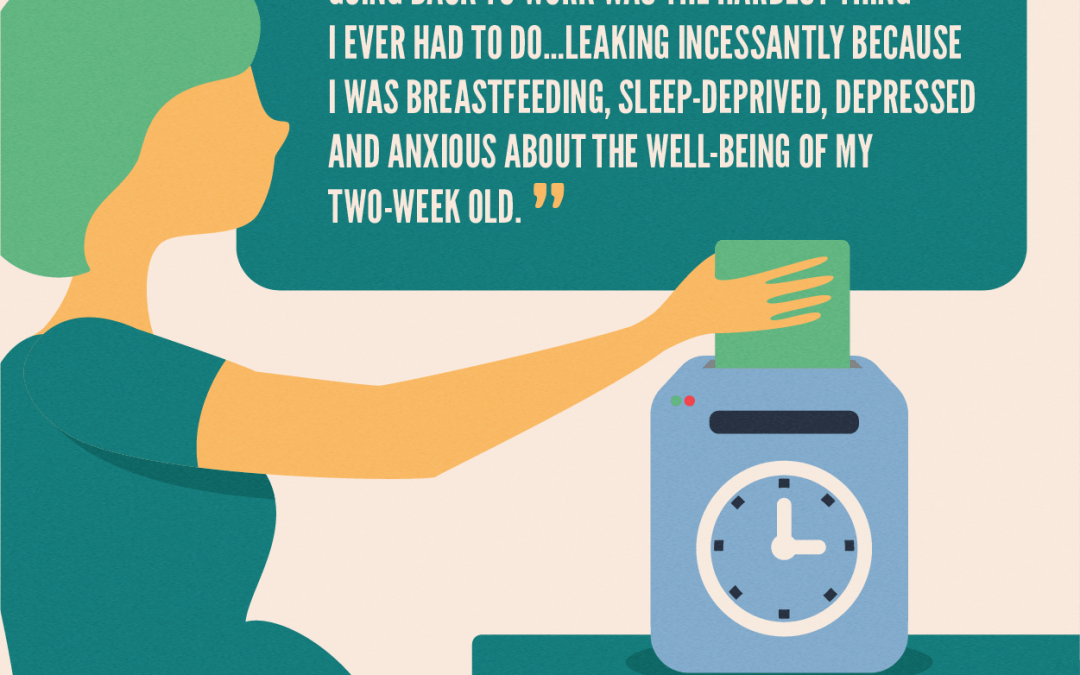While overall wage gap measures provide important insight, digging deeply into differences by race, industry, occupation and more is critical.
Key Facts: The Family and Medical Leave Act
The Family and Medical Leave Act (FMLA) has provided unpaid time to care since 1993, but millions are still left behind.
Paid Leave Means a Stronger Nation – 2023 Archived Version
A state-by-state analysis that highlights the significant and growing need for a national paid family and medical leave law that covers workers in all 51 states.
Partnership in Action: An Employer Guide to Building Gender Equity in the Workplace
“Partnership in Action: An Employer Guide to Building Gender Equity in the Workplace” is a blueprint for employers looking to promote and implement equitable policies at their companies, and provides recommendations that would help women, especially women of color, return to and stay in the labor force.
Understanding the Difference Between Paid Sick Days & Paid Family and Medical Leave
A primer on paid sick days and paid family and medical leave.
Discrimination While Pregnant
Any pregnant person may experience pregnancy discrimination. But because of the ways that racism, sexism and ableism have structured the United States economy, pregnant workers’ need for accommodations — and the harms they may face if unable to access accommodations — can differ significantly. Women and people of color are especially likely to be in jobs that are higher risk and lack adequate health and safety protections.
Historic Investments in Good Infrastructure Jobs Can’t Leave Women Behind
The bipartisan Infrastructure Investment and Jobs Act (IIJA) provides one of the most significant investments in the creation of good jobs in recent years. However, without intentional efforts to address occupational segregation in the key industries funded by the law, women could miss out on more than a million jobs in the next decade.
Threats On All Fronts
Analysis showing connections between the lack of abortion access, health care and workplace equity
Improving Maternal Health with the Pregnant Workers Fairness Act
The Pregnant Workers Fairness Act (PWFA) will ensure that employers provide reasonable accommodations to pregnant employees and that the workplace is an environment where needed accommodations are routinely expected and provided.
Sexual Harassment and the Gender Wage Gap
Despite being prohibited by Title VII of the Civil Rights Act of 1964, workplace sexual harassment remains pervasive and pernicious. Sexual harassment is one of many manifestations of power imbalances in the workplace.
This Mother’s Day, Moms Need Child Care, Paid Leave and Protections While Pregnant
Although all women are more likely to have home and care responsibilities than men, mothers have been particularly impacted by the pandemic economy. The ongoing lack of family support policies like paid family and medical leave and universal child care contribute to the inability of mothers to stay in their jobs.
Reasonable Accommodations for Pregnant Workers: State and Local Laws
Thirty-one states, including the District of Columbia, and four cities have passed laws requiring some employers to provide reasonable accommodations to pregnant workers.
Paid Leave Video
Business leaders join together to call for paid family and medical leave.
Saving the Lives of Moms & Babies
This 10-part series connects the dots between how different socioeconomic factors affect maternal and infant health, the outsize impact these factors have on Black, Indigenous, and other People of Color (BIPOC) communities, and recommendations to effect the change we need to ensure all moms and babies thrive.
Poor-Quality Built Environments Hurt Moms and Babies
The Problem: Deficiencies in neighborhoods’ physical conditions impair the health of pregnant people and their infants

Paid Leave Is Essential for Healthy Moms and Babies
The Problem: The lack of national paid leave compromises the health and well-being of pregnant people and their infants
Homelessness Hurts Moms and Babies
The Problem: The homelessness crisis is worsening and imperils pregnant people and their infants.
A Systemic Failure: Immigrant Moms and Babies Are Being Denied Health Care
The Problem: Many immigrants are denied access to health care, leaving moms and babies at risk
The Family And Medical Insurance Leave (FAMILY) Act: Frequently Asked Questions
Answers to frequently asked questions about the Family And Medical Insurance Leave Act (FAMILY Act).
Called to Care
Too often in our country’s history, the ability to take time to care for yourself and others while maintaining your economic security has been predominantly reserved for the white and wealthy few. Yet, it is through providing care for one another that we knit together the bonds of our families and communities.

